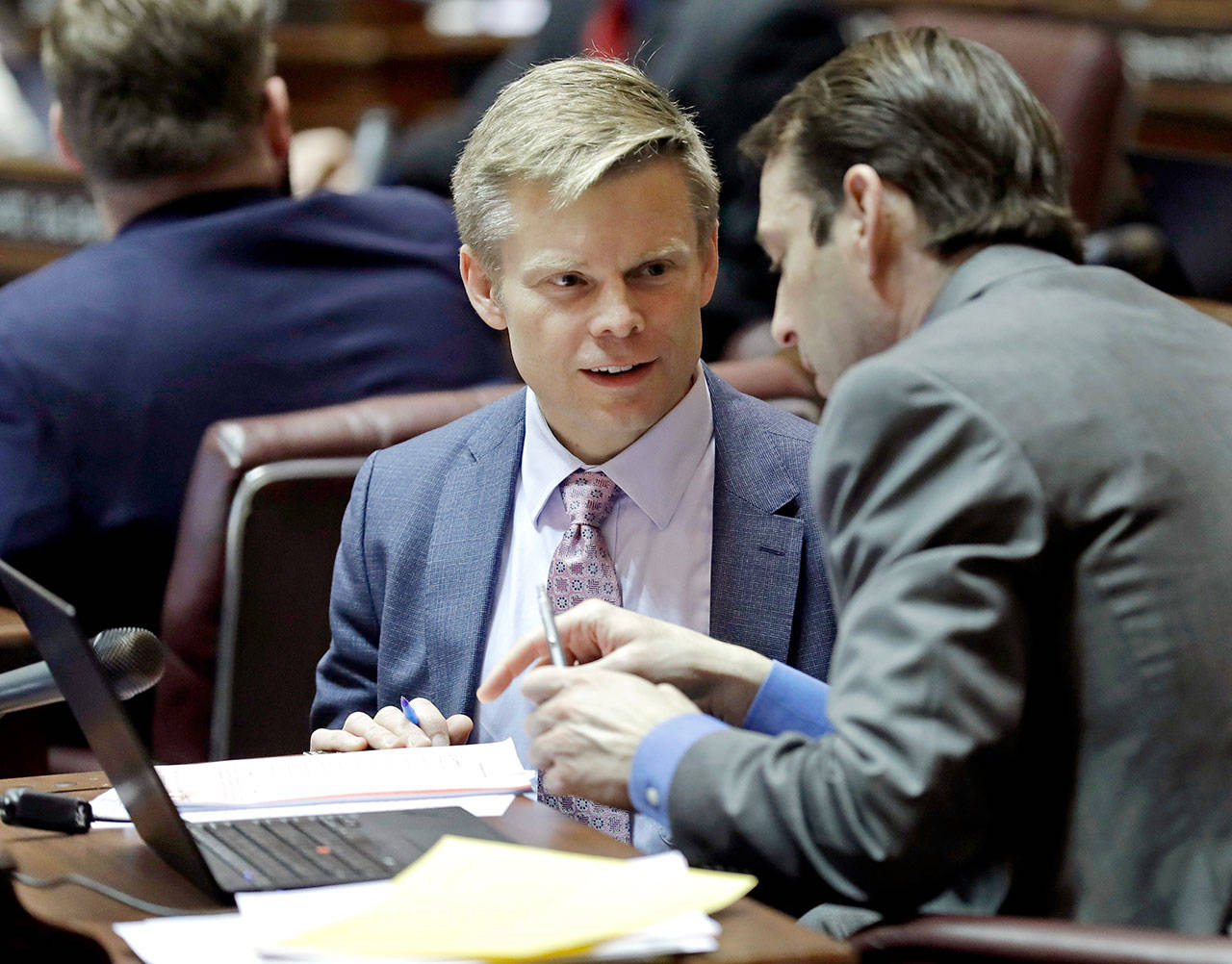By Rachel La Corte
The Associated Press
OLYMPIA — A year after Washington state lawmakers tried to exempt themselves from the state’s Public Records Act, one lawmaker is introducing a bill he says moves the Legislature toward more transparency — within limits.
The measure introduced Thursday by Sen. Jamie Pedersen, a Democrat from Seattle, states lawmakers would be subject to the voter-approved law — something a coalition of media organizations that have sued say is already the case — but establishes broad parameters on how the law applies to the legislative branch.
Senate Bill 5784 seeks to permanently exempt records ranging from staff analyses to drafts of bills and amendments or records of negotiations between and among lawmakers. It also looks to shield identifying information in constituent communications, such as names, though communications from lobbyists would be subject to full disclosure.
Pedersen called the bill a good faith effort, and argued that without that set of legislative exemptions, “the Legislature would be fundamentally changed and it would be much more difficult for us to do our jobs.” The bill is co-signed by a handful of other Democrats, including Majority Leader Andy Billig and Sen. Sam Hunt, chairman of the committee that is expected to hold a hearing on the bill mid-February.
But Michele Earl-Hubbard, an attorney for the media coalition that sued in September 2017, said the bill greatly expands the exemptions for the legislators and Legislature far beyond those that currently apply for local and other state agencies.
“The fundamental problem I have with it is they create a different standard for the legislative branch at almost every step,” she said.
The Senate bill comes following a December report from a public records task force that met four times in the wake of tension between the Legislature and media over the issue of legislative records and lawmakers’ assertion that they are not currently subject to the same disclosure rules that apply to other elected officials.
The task force, which included lawmakers and news media representatives, agreed that the Legislature should be more transparent but could not reach consensus about the extent to which documents reflecting lawmakers’ deliberative process should be blocked from disclosure.
Last year, Pedersen was among those who voted to change the law to retroactively specify that the Public Records Act did not apply to the legislative branch. Lawmakers introduced and passed the bill — which allowed for a more limited legislative disclosure obligation for things like daily calendars and correspondence with lobbyists — in two days, overriding all normal legislative procedures to quickly advance it with minimal public input. After thousands of people called or emailed the governor’s office in opposition, Gov. Jay Inslee vetoed the measure.
Last year’s bill was in response to a lawsuit filed by a media coalition, led by The Associated Press and joined by Sound Publishing among others, which said lawmakers were violating the law by not releasing emails, schedules and reports of sexual harassment.
A Thurston County superior court judge ultimately ruled that while the Washington Legislature, the House and Senate were not subject to the Public Records Act, the statute was clear that the offices of individual lawmakers were covered by the law. That ruling has been appealed, and is currently awaiting arguments before the state Supreme Court.
Pedersen said that said that last year’s legislative attempt was a “very painful learning experience” for members of the Legislature who were bombarded with calls and emails from their voters. He said that many lawmakers regretted “not only the process, but also the policy.”
Pedersen said his reasoning for moving forward with legislation in the midst of litigation is because “I heard loud and clear nine months ago from my constituents that they want the change now.”
Earl-Hubbard said if lawmakers want to show the public that they are serious about transparency, they could start operating within the current framework of disclosure rules.
“Why not just accept that the same rules apply to them that apply to everyone else?” she asked.

